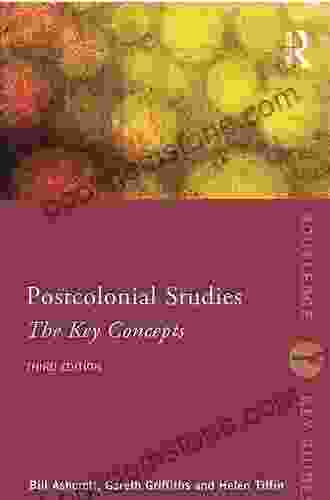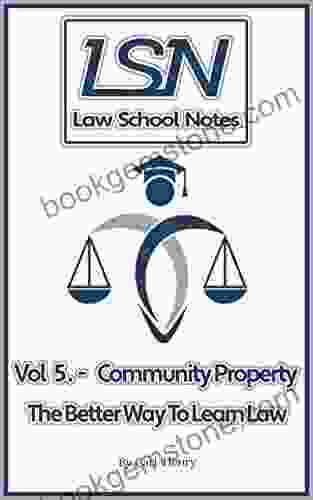Key Concepts in Postcolonial Literature: A Comprehensive Exploration

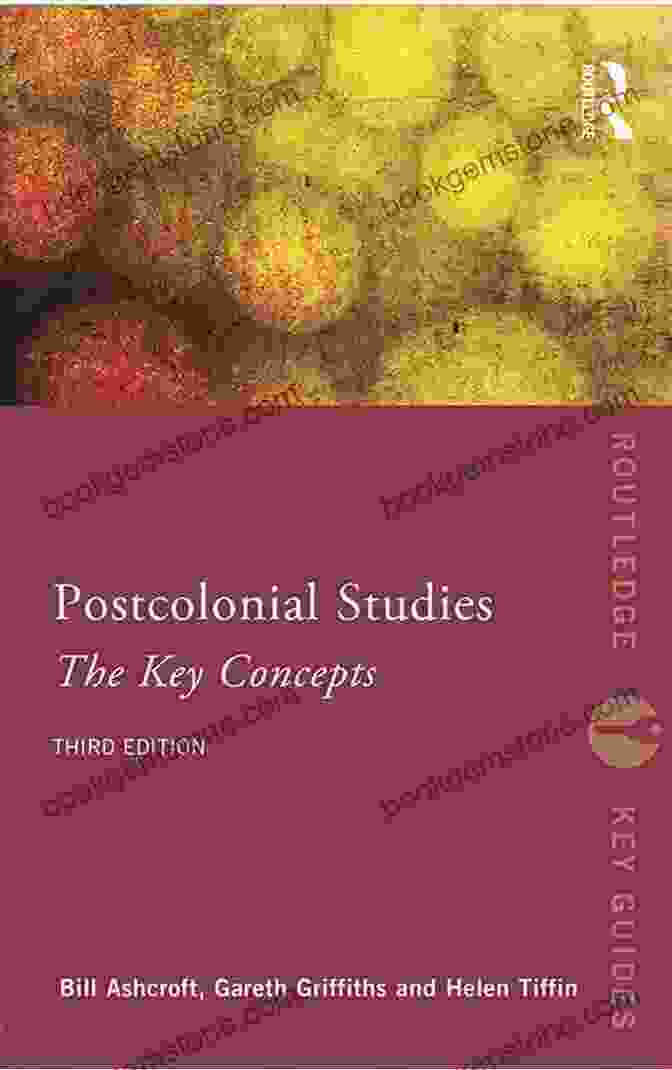
Postcolonial literature refers to literary works that emerged after the era of European colonialism, primarily focusing on the experiences and perspectives of people and societies that were subjected to colonial rule. These works grapple with the lasting effects of colonialism, exploring themes of identity, power dynamics, cultural hybridity, and the politics of representation. Understanding the key concepts associated with postcolonial literature is essential for delving into the richness and complexities of this literary genre.
5 out of 5
| Language | : | English |
| File size | : | 1114 KB |
| Text-to-Speech | : | Enabled |
| Enhanced typesetting | : | Enabled |
| Word Wise | : | Enabled |
| Print length | : | 264 pages |
| Screen Reader | : | Supported |
Key Concepts
Decolonization
Decolonization refers to the process by which colonized nations gain independence and regain control over their territories and resources. It involves the dismantling of colonial structures and systems of oppression, as well as the reassertion of indigenous identities and cultural practices. In postcolonial literature, decolonization is often a central theme, explored through the experiences of characters who navigate the complexities of post-colonial societies.
Neocolonialism
Neocolonialism refers to the continued influence of former colonizing powers over their former colonies, often through economic, political, and cultural means. Despite gaining independence, many post-colonial nations remain dependent on their former colonizers for various aspects of their development, resulting in ongoing power imbalances. Postcolonial literature often examines the dynamics of neocolonialism and its impact on postcolonial societies.
Hybridity
Hybridity refers to the blending and mixing of different cultures and identities that occurs as a result of colonialism. Post-colonial societies are often characterized by a complex amalgamation of indigenous, colonial, and global influences. In postcolonial literature, hybridity is often manifested in the characters, settings, and themes of the works, reflecting the multifaceted nature of postcolonial experience.
Othering
Othering refers to the process by which certain groups of people are constructed as different from and inferior to others. Colonialism often relied on the concept of othering to justify the subjugation of colonized peoples. In postcolonial literature, othering is a recurring theme, explored through the experiences of characters who are marginalized or discriminated against based on their race, gender, class, or cultural background.
Representation
Representation refers to the ways in which colonized peoples have been represented in literature, both during and after the colonial era. Postcolonial literature challenges the dominant and often stereotypical representations of colonized peoples, providing alternative narratives that reflect their diverse experiences and perspectives.
Trauma and Memory
Colonialism and its aftermath often result in collective and individual traumas that are passed down through generations. Postcolonial literature frequently explores the psychological and emotional impact of these traumas, examining how they shape the identities and relationships of postcolonial individuals and communities.
Resistance and Agency
Despite the oppressive forces of colonialism, colonized peoples have always found ways to resist and assert their agency. Postcolonial literature celebrates these acts of resistance, highlighting the resilience and determination of individuals and communities in the face of adversity.
The key concepts in postcolonial literature provide a framework for understanding the complexities and nuances of this literary genre. By exploring themes of decolonization, neocolonialism, hybridity, othering, representation, trauma, resistance, and agency, postcolonial literature offers valuable insights into the experiences and perspectives of people and societies that have been shaped by colonialism. Through its diverse and often challenging narratives, postcolonial literature contributes to a deeper understanding of the legacies of colonialism and the ongoing struggles for liberation and self-determination.
5 out of 5
| Language | : | English |
| File size | : | 1114 KB |
| Text-to-Speech | : | Enabled |
| Enhanced typesetting | : | Enabled |
| Word Wise | : | Enabled |
| Print length | : | 264 pages |
| Screen Reader | : | Supported |
Do you want to contribute by writing guest posts on this blog?
Please contact us and send us a resume of previous articles that you have written.
 Best Book
Best Book Page Flip
Page Flip Bookshelf
Bookshelf Literary loom
Literary loom Chapter
Chapter Bookish
Bookish PageTurner
PageTurner Bibliophile
Bibliophile Story
Story Inkwell
Inkwell Bookworm
Bookworm Labyrinth
Labyrinth Plot Twist
Plot Twist Prose
Prose Paperback
Paperback Storyteller
Storyteller Sanctuary
Sanctuary Fiction
Fiction Reading
Reading Chronicle
Chronicle Read
Read Con Coughlin
Con Coughlin Gina Wisker
Gina Wisker Simon Hart
Simon Hart Kate Williams
Kate Williams Nick Adams
Nick Adams Michelle Larkin
Michelle Larkin Jay Kirk
Jay Kirk John Walters
John Walters Grady Hendrix
Grady Hendrix Steven W Dulan
Steven W Dulan Kenneth Oppel
Kenneth Oppel Jared Derksen
Jared Derksen Sigrid Fry Revere
Sigrid Fry Revere Philip Jackson
Philip Jackson J D Ware
J D Ware Lesley Jane Eales Reynolds
Lesley Jane Eales Reynolds Rob Pate
Rob Pate Helen Dunn Frame
Helen Dunn Frame Marie Cirano
Marie Cirano Michele G Kunz
Michele G Kunz Aminta Arrington
Aminta Arrington Dr Jyuthica Laghate
Dr Jyuthica Laghate Manny Serrato
Manny Serrato Raquel Baccetto
Raquel Baccetto Michael Corayer
Michael Corayer Douglas Preston
Douglas Preston William Pitts
William Pitts Sterling Test Prep
Sterling Test Prep Sylvain Tesson
Sylvain Tesson John Murray
John Murray Luca Vargiu
Luca Vargiu Helene St James
Helene St James Eric Newman
Eric Newman Seyyed Hossein Nasr
Seyyed Hossein Nasr Brien Foerster
Brien Foerster Chic Scott
Chic Scott Genius Reads
Genius Reads Narasimha Karumanchi
Narasimha Karumanchi Edwyn Forest
Edwyn Forest Paul Johnson
Paul Johnson C F Crist
C F Crist Janice K Ledford
Janice K Ledford Rochelle Knight
Rochelle Knight Ross Bonander
Ross Bonander Stephen Ausherman
Stephen Ausherman Markes E Johnson
Markes E Johnson Dr Hooelz
Dr Hooelz Saroo Brierley
Saroo Brierley Wilfred M Mcclay
Wilfred M Mcclay Robert Cargill
Robert Cargill Gerald Hausman
Gerald Hausman Robert Finch
Robert Finch Margaret K Nydell
Margaret K Nydell Supersummary
Supersummary Ted Kulfan
Ted Kulfan Pamela K Lamb
Pamela K Lamb William Wadsworth
William Wadsworth J Maarten Troost
J Maarten Troost John Keahey
John Keahey Mike Chambers
Mike Chambers Gavin Francis
Gavin Francis Tania N Shah
Tania N Shah Susan Weese
Susan Weese Terry Frei
Terry Frei Jeremy K Davis
Jeremy K Davis Dk
Dk Stephen John
Stephen John John Hemming
John Hemming Ian Tuhovsky
Ian Tuhovsky Rico Austin
Rico Austin Cliff Seruntine
Cliff Seruntine Ana Sortun
Ana Sortun Tony Mendoza
Tony Mendoza John Gilstrap
John Gilstrap Ibl Press
Ibl Press Wayne J Lutz
Wayne J Lutz One Edition Kindle Edition
One Edition Kindle Edition Ted Chiang
Ted Chiang Julia Quinn
Julia Quinn Julia Alvarez
Julia Alvarez Michael Powell
Michael Powell Ilona Andrews
Ilona Andrews Insight Guides
Insight Guides Nisha Garg
Nisha Garg Preston George Pysh
Preston George Pysh Lonely Planet
Lonely Planet Cyndi Kinney
Cyndi Kinney Luisa Gastambide
Luisa Gastambide Fethi Mansouri
Fethi Mansouri W E B Griffin
W E B Griffin Lawrence Osborne
Lawrence Osborne Patrick O Sullivan
Patrick O Sullivan Rajani Katta
Rajani Katta Sport Hour
Sport Hour Joel J Lerner
Joel J Lerner United States Government Us Army
United States Government Us Army Martin Woodward
Martin Woodward Caryn Boddie
Caryn Boddie Simon Richmond
Simon Richmond Leslie Davenport
Leslie Davenport Smart Reads
Smart Reads Laura Lincoln Maitland
Laura Lincoln Maitland Manfred Theisen
Manfred Theisen John Hiker
John Hiker Justin Goldman
Justin Goldman Greg Breining
Greg Breining John Rae
John Rae Gregg Hurwitz
Gregg Hurwitz 50minutes Com
50minutes Com Proprietary Edition Kindle Edition
Proprietary Edition Kindle Edition Deanna Raybourn
Deanna Raybourn C E Flores
C E Flores Dr Lew Deitch
Dr Lew Deitch Viki Winterton
Viki Winterton Robert Crais
Robert Crais Laura Lee Smith
Laura Lee Smith Robert B Parker
Robert B Parker Laura Peyton Roberts
Laura Peyton Roberts Janet Chapple
Janet Chapple Gil Martin
Gil Martin Richard Kadrey
Richard Kadrey Mary Ann Hogan
Mary Ann Hogan Rusty Young
Rusty Young Huma Filo
Huma Filo Tim Bauerschmidt
Tim Bauerschmidt General
General Redhen Family
Redhen Family Mark Rosenman
Mark Rosenman Harley Wylde
Harley Wylde Neha Gupta
Neha Gupta Rick Steves
Rick Steves Jeanie Buss
Jeanie Buss Lorelou Desjardins
Lorelou Desjardins Richard Henry Dana
Richard Henry Dana Prepvantage
Prepvantage Mitt Romney
Mitt Romney Frosty Wooldridge
Frosty Wooldridge Katherine Nouri Hughes
Katherine Nouri Hughes Nicholas Bjorn
Nicholas Bjorn John Seibert Farnsworth
John Seibert Farnsworth Nikki Nichols
Nikki Nichols Nicholas J Cotsonika
Nicholas J Cotsonika Paul Murton
Paul Murton Tim Hannigan
Tim Hannigan Wayne Johnston
Wayne Johnston Lawrence Durrell
Lawrence Durrell Terry Pratchett
Terry Pratchett Various
Various James Cowan
James Cowan Tim Notier
Tim Notier Cosmic Kids Publications
Cosmic Kids Publications Colson Whitehead
Colson Whitehead S K Gupta
S K Gupta Michael Vlessides
Michael Vlessides Jeffrey Alford
Jeffrey Alford A R Vasishtha
A R Vasishtha Trevanian
Trevanian Jim Mancuso
Jim Mancuso Helene Martensson
Helene Martensson Nicolas Rodak
Nicolas Rodak Joseph Robertia
Joseph Robertia Tony Horwitz
Tony Horwitz J R Haseloff
J R Haseloff Elena Leman
Elena Leman Francis J Buckley
Francis J Buckley Kaye Edwards
Kaye Edwards Snap Summaries
Snap Summaries Pip Williams
Pip Williams Ben Tall
Ben Tall Print Replica Kindle Edition
Print Replica Kindle Edition Jean Vives
Jean Vives Tim Brown
Tim Brown Kristine Ellingson
Kristine Ellingson Tim Dowley
Tim Dowley Bob Duff
Bob Duff Benjamin P Bowser
Benjamin P Bowser Nicholas Gallo
Nicholas Gallo Carlos A Caggiani
Carlos A Caggiani Jon A Archambault
Jon A Archambault Michelle Lee
Michelle Lee Michele Shriver
Michele Shriver Smart Edition
Smart Edition Jason Hogan
Jason Hogan Luca Brambilla
Luca Brambilla Dr John Hockey
Dr John Hockey Jearl Walker
Jearl Walker Jen Beck Seymour
Jen Beck Seymour Ron Siliko
Ron Siliko Manik Sheoran
Manik Sheoran Baby Professor
Baby Professor Alex Hibbert
Alex Hibbert Julia Ann Clayton
Julia Ann Clayton Lingo Mastery
Lingo Mastery Rebecca E F Barone
Rebecca E F Barone Brian Mcfarlane
Brian Mcfarlane Joshua Armstrong
Joshua Armstrong Kim Heldman
Kim Heldman Fodor S Travel Guides
Fodor S Travel Guides Amy Wilentz
Amy Wilentz Xavier Marie Bonnot
Xavier Marie Bonnot Um A Yube
Um A Yube Nicholas Crowder
Nicholas Crowder John Morrison
John Morrison Osasumwen Asoro
Osasumwen Asoro John W Lundin
John W Lundin Illustrated Edition Kindle Edition
Illustrated Edition Kindle Edition Russell Maddicks
Russell Maddicks Sharon A Wynne
Sharon A Wynne Andy Kirkpatrick
Andy Kirkpatrick Tiara R Brown
Tiara R Brown William W Johnstone
William W Johnstone Edna Fernandes
Edna Fernandes Businessnews Publishing
Businessnews Publishing Language Guru
Language Guru Magnus D Jango
Magnus D Jango Paul Watson
Paul Watson Edulink Gmbh
Edulink Gmbh Rhonda Leeman Taylor
Rhonda Leeman Taylor Peterson S
Peterson S Simon Turney
Simon Turney Mark Zegarelli
Mark Zegarelli Sarah Vowell
Sarah Vowell Stephen Haddelsey
Stephen Haddelsey Triumphant Test Prep
Triumphant Test Prep Bruce Hunt
Bruce Hunt Thomas E Johnson
Thomas E Johnson Leo Books
Leo Books Rory Stewart
Rory Stewart Jonny Zucker
Jonny Zucker Neil Chelton
Neil Chelton Nachole Johnson
Nachole Johnson L T Ryan
L T Ryan Meike Winnemuth
Meike Winnemuth Vincent Chidindu Asogwa
Vincent Chidindu Asogwa Fred Ray Lybrand
Fred Ray Lybrand Len Airey
Len Airey Edward Hoagland
Edward Hoagland Lewis Morris
Lewis Morris Ged Wilmot
Ged Wilmot Douglas J Gould
Douglas J Gould Joeanna Rebello Fernandes
Joeanna Rebello Fernandes Kindle Edition
Kindle Edition Konstantinos Mylonas
Konstantinos Mylonas Emily Colin
Emily Colin Skip Hollandsworth
Skip Hollandsworth Noor De Olinad
Noor De Olinad Moshe Ohayon
Moshe Ohayon Shay Spivey
Shay Spivey Prasad Raju V V N R Pathapati
Prasad Raju V V N R Pathapati Shanta Kumar
Shanta Kumar Lloyd Richardson
Lloyd Richardson Helen Wenley
Helen Wenley Kerry Karram
Kerry Karram Rich Polanco
Rich Polanco Felicie Williams
Felicie Williams Caitlin Doughty
Caitlin Doughty Bob Shepton
Bob Shepton Emt Basic Exam Prep Team
Emt Basic Exam Prep Team Disha Experts
Disha Experts Hannah Tyson
Hannah Tyson Nigel Cliff
Nigel Cliff Joseph Toone
Joseph Toone Ben Malisow
Ben Malisow Kevin Marx
Kevin Marx Quick Reads
Quick Reads Ken Chaddock
Ken Chaddock Mark Dawson
Mark Dawson William Shakespeare
William Shakespeare Stephan Orth
Stephan Orth Randy Wayne White
Randy Wayne White Cindi Myers
Cindi Myers Philip Donlay
Philip Donlay Tao Le
Tao Le T A Williams
T A Williams Nick Angelis
Nick Angelis Megan Poore
Megan Poore Eugene C Toy
Eugene C Toy Julian Stern
Julian Stern Doug Gaskill
Doug Gaskill John Merriam
John Merriam Joe Pelletier
Joe Pelletier Rachel Russ
Rachel Russ Roy Fisher
Roy Fisher R Raman
R Raman Russell Streeter
Russell Streeter Emily Kimelman
Emily Kimelman Mark Mclaughlin
Mark Mclaughlin Evie Litton
Evie Litton Approach Guides
Approach Guides Hilde Hoogenboom
Hilde Hoogenboom Zip Reads
Zip Reads Jay H Lefkowitch
Jay H Lefkowitch Topher Donahue
Topher Donahue Patricia Briggs
Patricia Briggs Michel Roy
Michel Roy Brooks Fiesinger
Brooks Fiesinger Melody Carlson
Melody Carlson Pauline Harmange
Pauline Harmange Bob Mckenzie
Bob Mckenzie Michael Renshaw
Michael Renshaw Morgan Stafford
Morgan Stafford Khalid Khashoggi
Khalid Khashoggi Rex Nelson
Rex Nelson Maria Spantidi
Maria Spantidi Alexis Lipsitz Flippin
Alexis Lipsitz Flippin Dixie Dansercoer
Dixie Dansercoer Jack Slater
Jack Slater Kira Salak
Kira Salak Richard Bak
Richard Bak Sean Dietrich
Sean Dietrich Fridtjof Nansen
Fridtjof Nansen Georgios Papadakis
Georgios Papadakis Boye Lafayette De Mente
Boye Lafayette De Mente Carla Mooney
Carla Mooney Matthew Simon
Matthew Simon Kayla Chalko
Kayla Chalko Jane Moore
Jane Moore Dan Fullerton
Dan Fullerton Anita Landoll
Anita Landoll Christopher D Nolan
Christopher D Nolan Tony Daffern
Tony Daffern Fiona Gibson
Fiona Gibson Savage Greenboro
Savage Greenboro Hugh Sinclair
Hugh Sinclair Nick Smith
Nick Smith Jamie Jensen
Jamie Jensen Garry J Shaw
Garry J Shaw Eric Bodnar
Eric Bodnar Hugo Banzer Suarez
Hugo Banzer Suarez Ray Walker
Ray Walker Dr Ray Makar
Dr Ray Makar Louis L Amour
Louis L Amour Edward R Lachapelle
Edward R Lachapelle Lucille Recht Penner
Lucille Recht Penner William Ma
William Ma Mark Greaney
Mark Greaney Sandra Dallas
Sandra Dallas Matt Racine
Matt Racine Vince Kotchian
Vince Kotchian Christophe P Yerling Ph D
Christophe P Yerling Ph D Robert N Rosen
Robert N Rosen Sara Wheeler
Sara Wheeler Steve Warner
Steve Warner Isee Exam Preparation Experts
Isee Exam Preparation Experts Rebecca Hill
Rebecca Hill Andy Russell
Andy Russell Ashley Schmitt
Ashley Schmitt Kazim Ali
Kazim Ali Jeff Hay
Jeff Hay Kevin Shea
Kevin Shea John Henderson
John Henderson Peter Mansfield
Peter Mansfield Karsten Heuer
Karsten Heuer Jason Dean
Jason Dean Erin Trahan
Erin Trahan James Cave
James Cave Mauricio Fau
Mauricio Fau George Orwell
George Orwell Lucy Peet
Lucy Peet Brandon Royal
Brandon Royal Wolfgang Daunicht
Wolfgang Daunicht David Archer
David Archer Narendra Kumar V
Narendra Kumar V Marie Benedict
Marie Benedict L Waxy Gregoire
L Waxy Gregoire Maggie Ryan
Maggie Ryan Jenny Mackay
Jenny Mackay Joseph Phillips
Joseph Phillips Kim Heinbuch
Kim Heinbuch Stan Skrabut
Stan Skrabut Anuj Tikku
Anuj Tikku Zigzag English
Zigzag English Greg Gilhooly
Greg Gilhooly Katrina Lawrence
Katrina Lawrence Seth Abramson
Seth Abramson Kaplan Test Prep
Kaplan Test Prep Kanchan Suyash
Kanchan Suyash Wickaninnish Inn
Wickaninnish Inn Scott Butler
Scott Butler Lonely Planet Kids
Lonely Planet Kids Balazs Csigi
Balazs Csigi Rupika Raj
Rupika Raj Alan Charlesworth
Alan Charlesworth Trivium Test Prep
Trivium Test Prep Kathleen Kirkland
Kathleen Kirkland Angela Stevens
Angela Stevens Garry Burnett
Garry Burnett Joshua Jelly Schapiro
Joshua Jelly Schapiro Robert D Kaplan
Robert D Kaplan Hicham And Mohamed Ibnalkadi
Hicham And Mohamed Ibnalkadi Stuart Woods
Stuart Woods Horace C A
Horace C A Miles Martin
Miles Martin Juliet Grames
Juliet Grames Steven Cowie
Steven Cowie Ian C Friedman
Ian C Friedman W M Raebeck
W M Raebeck G Neri
G Neri Janet Evans
Janet Evans J R Klein
J R Klein Monica Sorrenson
Monica Sorrenson Rod Kulbach
Rod Kulbach Nadav Snir
Nadav Snir Andrew Hudgins
Andrew Hudgins Anna Curran
Anna Curran Nielson Phu
Nielson Phu April Vahle Hamel
April Vahle Hamel Steve Schwartz
Steve Schwartz Tessa Dare
Tessa Dare Bright Summaries
Bright Summaries Sigurd F Olson
Sigurd F Olson Ingrid P Wicken
Ingrid P Wicken John Germov
John Germov Ross Blankenship
Ross Blankenship Jesse M Ehrenfeld
Jesse M Ehrenfeld Sophie Fuggle
Sophie Fuggle Andrew Hempstead
Andrew Hempstead Maria Montessori
Maria Montessori Khaled Hosseini
Khaled Hosseini Richard Palmer
Richard Palmer Yaa Gyasi
Yaa Gyasi Rosita Forbes
Rosita Forbes Bookrags Com
Bookrags Com Pat Thomson
Pat Thomson Robert Collins
Robert Collins John Scherber
John Scherber Mariah Laine Moyle
Mariah Laine Moyle Tracy Johnston
Tracy Johnston David J Rothman
David J Rothman Lisa Kleypas
Lisa Kleypas Zanna Sloniowska
Zanna Sloniowska Warwick Trucker
Warwick Trucker Grace Barrington Shaw
Grace Barrington Shaw Kristopher Martel
Kristopher Martel Mark Lee
Mark Lee David Gordon
David Gordon Stanley Vast
Stanley Vast Lucy Coleman
Lucy Coleman Wizer
Wizer Keri Bloomfield
Keri Bloomfield Mike Kraus
Mike Kraus Lally Brown
Lally Brown Jocelyn Jane Cox
Jocelyn Jane Cox Paul Ames
Paul Ames Meghan Mccarthy
Meghan Mccarthy Educational Testing Service
Educational Testing Service Jane Bottomley
Jane Bottomley Ken Griffey Jr
Ken Griffey Jr John Howells
John Howells Fatime Losonci
Fatime Losonci Eric Engle
Eric Engle Laura Ben David
Laura Ben David Jackson Carter
Jackson Carter Alina Adams
Alina Adams Elaine Sciolino
Elaine Sciolino Lynda Field
Lynda Field Kathleen Norris
Kathleen Norris Laura Albritton
Laura Albritton Christine Wilcox
Christine Wilcox Kevin Biggar
Kevin Biggar Wendy C Crone
Wendy C Crone Kristin Hannah
Kristin Hannah Elizabeth Hay
Elizabeth Hay Lance Pototschnik
Lance Pototschnik Bob Smale
Bob Smale Darren Alff
Darren Alff Bruce Boudreau
Bruce Boudreau
Light bulbAdvertise smarter! Our strategic ad space ensures maximum exposure. Reserve your spot today!
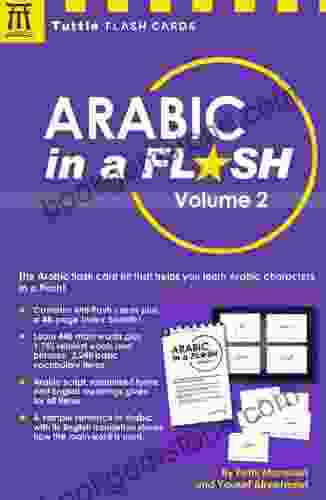
 Vernon BlairArabic In Flash Kit Ebook Volume Tuttle Flash Cards: Your Gateway to Arabic...
Vernon BlairArabic In Flash Kit Ebook Volume Tuttle Flash Cards: Your Gateway to Arabic...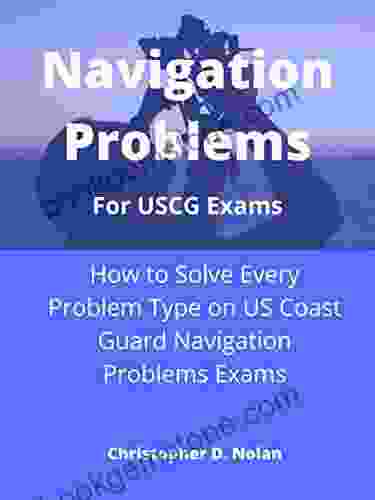
 Chandler WardNavigation Problems: Understanding and Overcoming Common Challenges for USCG...
Chandler WardNavigation Problems: Understanding and Overcoming Common Challenges for USCG...
 John Dos PassosThe Ultimate Boston Bruins Trivia Book: Dive into the Legendary History of...
John Dos PassosThe Ultimate Boston Bruins Trivia Book: Dive into the Legendary History of... Justin BellFollow ·17.5k
Justin BellFollow ·17.5k Nathaniel HawthorneFollow ·5.8k
Nathaniel HawthorneFollow ·5.8k Jayson PowellFollow ·15.7k
Jayson PowellFollow ·15.7k Jonathan HayesFollow ·15.6k
Jonathan HayesFollow ·15.6k Ken FollettFollow ·4.9k
Ken FollettFollow ·4.9k Duncan CoxFollow ·3.2k
Duncan CoxFollow ·3.2k Jacob HayesFollow ·8.3k
Jacob HayesFollow ·8.3k Felix CarterFollow ·12.8k
Felix CarterFollow ·12.8k
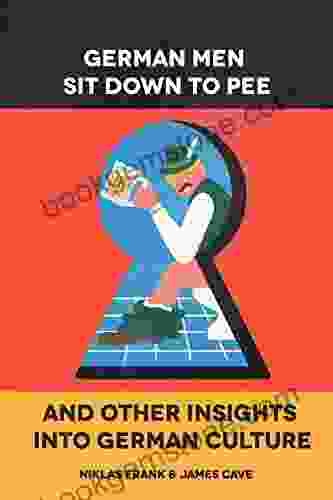
 Scott Parker
Scott ParkerGerman Men Sit Down To Pee And Other Insights Into German...
German culture is...

 Tyler Nelson
Tyler NelsonHigh School: A Comprehensive Guide to Surviving the...
High school can...
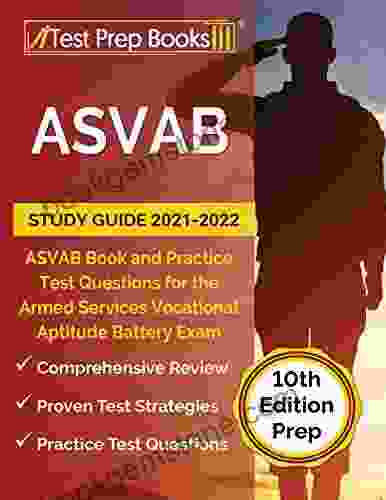
 Dan Bell
Dan BellUnlocking Success in Military Careers: A Comprehensive...
Embarking on a military career is a...
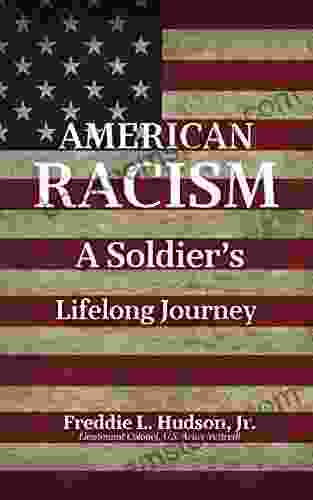
 Leslie Carter
Leslie CarterAn American Soldier's Lifelong Journey with Racism: From...
In the annals of...
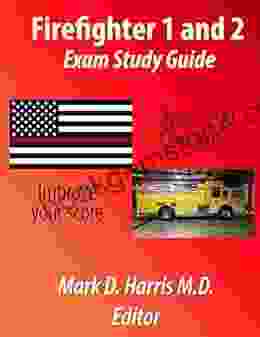
 Aldous Huxley
Aldous HuxleyFirefighters: Guardians of Our Communities and Exam Study...
Firefighters, the valiant sentinels of...
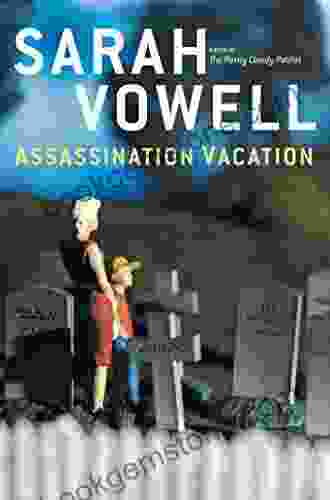
 Jason Reed
Jason ReedAn Unforgettable Literary Journey: Exploring...
: A Trip Down History's Darkest...
5 out of 5
| Language | : | English |
| File size | : | 1114 KB |
| Text-to-Speech | : | Enabled |
| Enhanced typesetting | : | Enabled |
| Word Wise | : | Enabled |
| Print length | : | 264 pages |
| Screen Reader | : | Supported |


